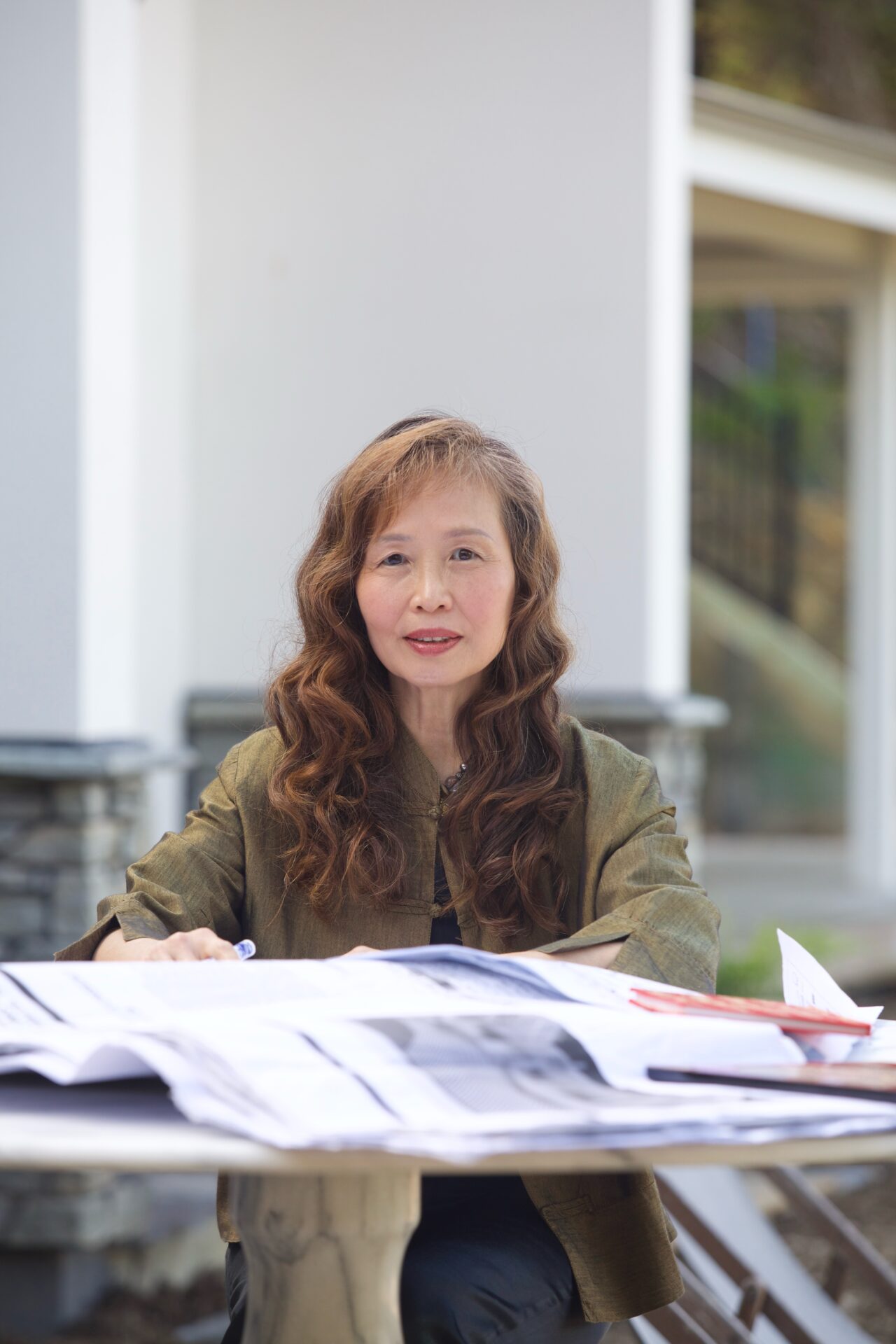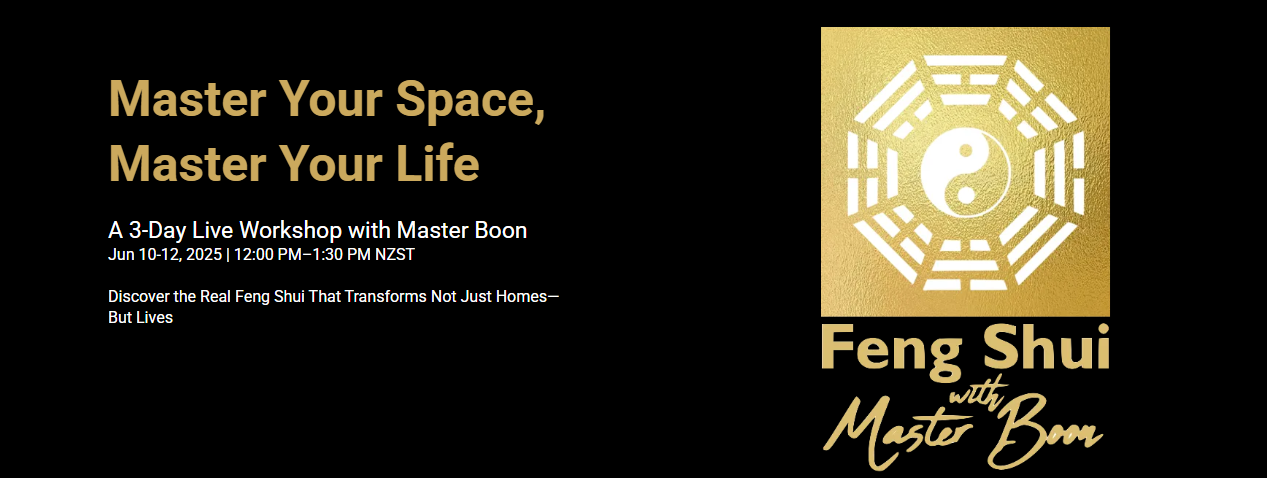The Star Lifestyle, Malaysians Abroad, Monday September 23, 2002
Art of Aligning Life Force

Feng shui masters believe that we can alter one-third of our luck by applying the principles of feng shui to harness the life-giving forces of nature, writes MAJORIE CHIEW.
IS FENG shui a superstitious practice? Does it involve evil spirits? The answer to both questions is an emphatic “No”, says Yap Cheng Hai, grandmaster of feng shui.
Feng shui is a science based on the systematic and formulated knowledge of the philosophy of Tao and the impact of the complex forces of nature on our lives, says Yap. It is also the art of strategic alignment and positioning of our workspace and living space according to the influence of qi, the energy or life force of the universe.
Simply put, Yap will tell you that the ultimate practice of feng shui is “to harness beneficial forces (and avoid harmful ones) to promote personal health, harmony and prosperity.
“Feng shui actually works!” Yap enthuses.
Yap began studying feng shui seriously 50 years ago. His two young sons then were always falling ill with bouts of bronchitis or asthma attacks. After five years of visits to the doctor, the boys were still doing poorly.
“From my study of feng shui, I discovered what was wrong, especially the position of the bed,” said Yap.
He moved their beds around. After practising feng shui for two months, Yap said the boys’ condition improved.
Yap has provided feng shui advice to countless business tycoons, politicians, members of royalty, celebrities and spiritual leaders all over the world. He has travelled extensively to deliver powerful talks on the life-changing secrets of feng shui and helped countless individuals to improve their fortune and quality of life.
Yap was addressing participants at an inaugural two-day feng shui for beginners course conducted by his daughter, Hwee Boon. Fondly known as Boon, she is the principal of Feng Shui for Enriching Lives, a Melbourne-based company offering consultancy and classes in feng shui. Boon started her feng shui classes in April this year when her father’s clients approached her to teach the subject. She took up feng shui out of her deep love for the subject.
Boon, who resides in Australia, runs a successful business consultancy in strategic marketing and business development for the highly technical biomedical industry. She operates at an international level, introducing US biomedical technologies into the Asia-Pacific region.
“The skills in interpreting feng shui come from experience as well as the individual’s ability to assimilate knowledge,” says Boon, who advised the participants to abandon whatever preconceptions they had about feng shui and learn from the course.
The Beginners Intensive Course provides the groundwork for the study of feng shui. It covers the fundamentals of feng shui; principles of Forms, Eight Mansions and Flying Stars; and the vital secrets of effective application.
Under the fundamentals of feng shui, participants will learn about qi, the principles of yin and yang, the five elements and the two systems of classical feng shui, among other topics.
The principles of Forms focus on the four celestial animals – the white tiger, red phoenix, green dragon and black tortoise – which influence the feng shui of a place; how to select ideal sites; and recognising poison arrows. Participants will also learn about the concept of Eight Mansions, and how to use related formulae and reference charts.
Lessons on Flying Stars will teach students how to fly the stars, plot the charts and understand the principles. A good student is capable of knowing the feng shui of his house by simply flying the stars!
More importantly, Boon shows her students how to use these methodologies to remove contradictions and achieve results.
The three types of luck or cosmic trinity is a fundamental concept of the universe involving Heaven, Man and Earth. A person’s luck is said to be under the influence of these three entities in the cosmic trinity.
“Heaven luck (fate or destiny) is what we’re born with. It cannot be changed and affects one-third of our lives,” says Boon. “Man luck is what we achieve through hard work, education, perseverance, and what we do. It affects another third of our lives. Man luck is within our control to a large extent.
“Earth luck has to do with feng shui. It is the art of harnessing the energy or forces of nature. This aspect of luck affects one-third of our lives, and is left in our hands to do as we please. By applying the principles of feng shui in our homes, we can alter one-third of our luck.” Under the five elements of feng shui (fire, earth, metal, water and wood), one learns how to interpret the qualities of qi involving these five elements, according to their productive, weakening and destructive cycles.
The feng shui of a house, says Boon, is determined by three important factors: the position of the main door, stove/kitchen, and the master bedroom. One can learn to identify auspicious and inauspicious qi, and harness the life-giving forces for one’s well-being.
Sharp or jagged edges pointing at one’s house or property are deemed to be poison arrows which bring sar qi (inauspicious qi).
Boon relates how the owners of a building in Kuala Lumpur sought her father’s advice when a very tall structure was built in front of their building.
“The new construction looked really threatening and my father advised the owners to build a beautiful rock garden in front of their building to draw auspicious qi in.”
Houses sitting on the curve of a road are also said to be in the path of the sar qi. Houses facing T-junctions are also in the direct path of bad qi.
Interior designer Shobana Sivalingam, who attended Boon’s basic feng shui course, believes that her newly-acquired knowledge will enable her to be a better designer and give her clients more value for their money.
Another happy participant was contractor C. Kam. Kam proved to be a good student who could “fly the stars” (that is, work out the feng shui of a house).”I hope to study the feng shui of my house and improve on it,” said Kam.
Forward this information to your colleagues, friends or business associates who might benefit from this article.






